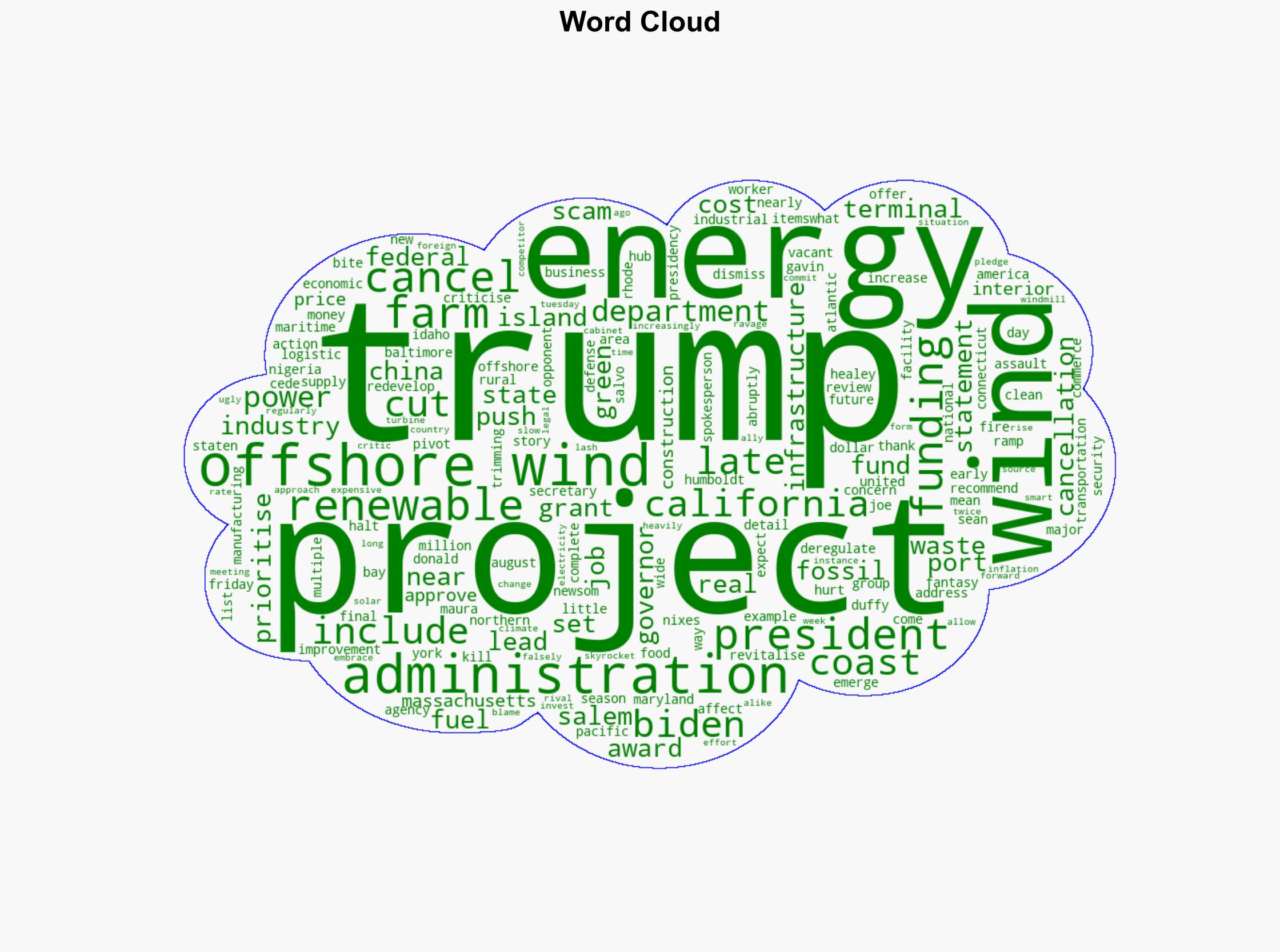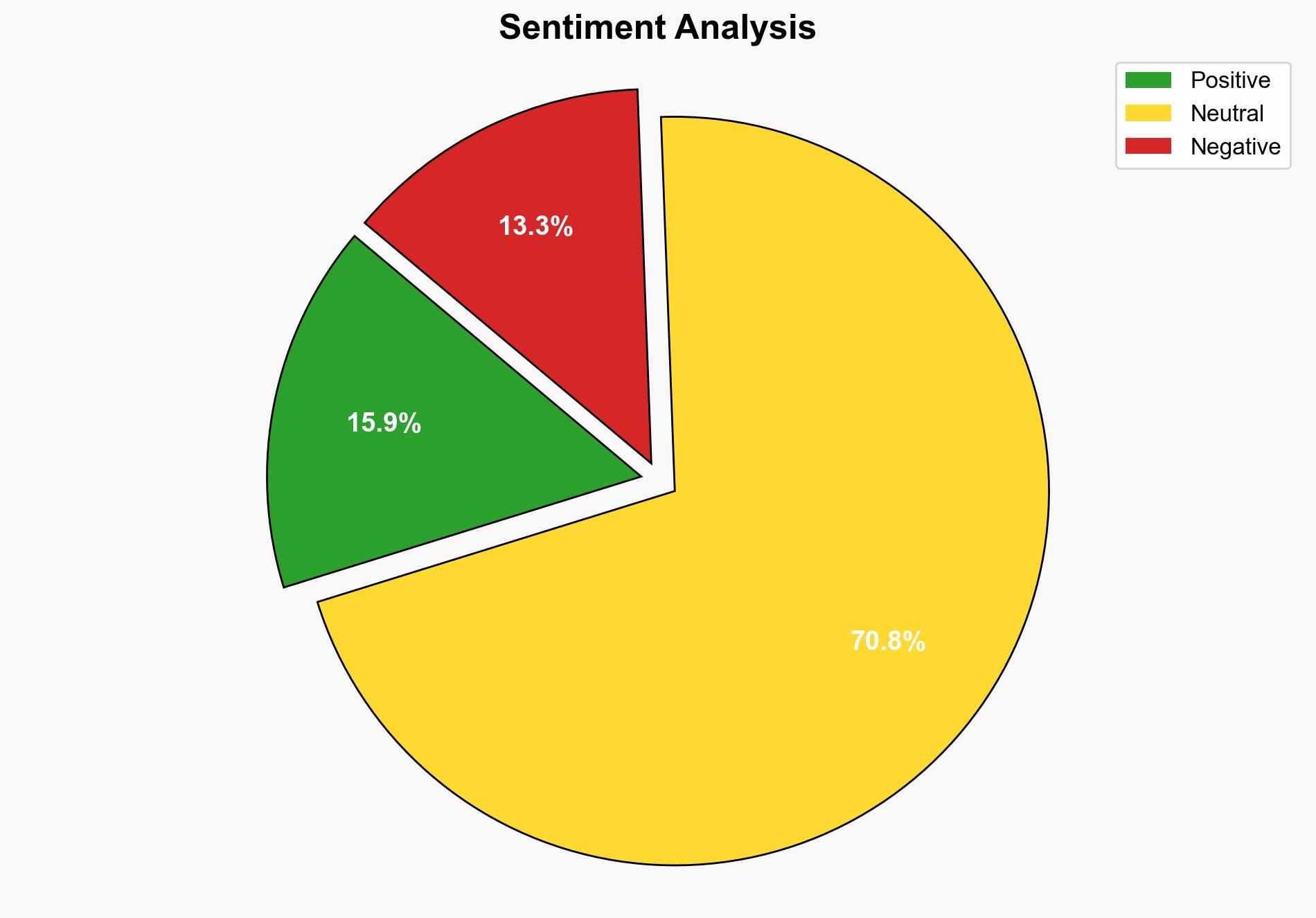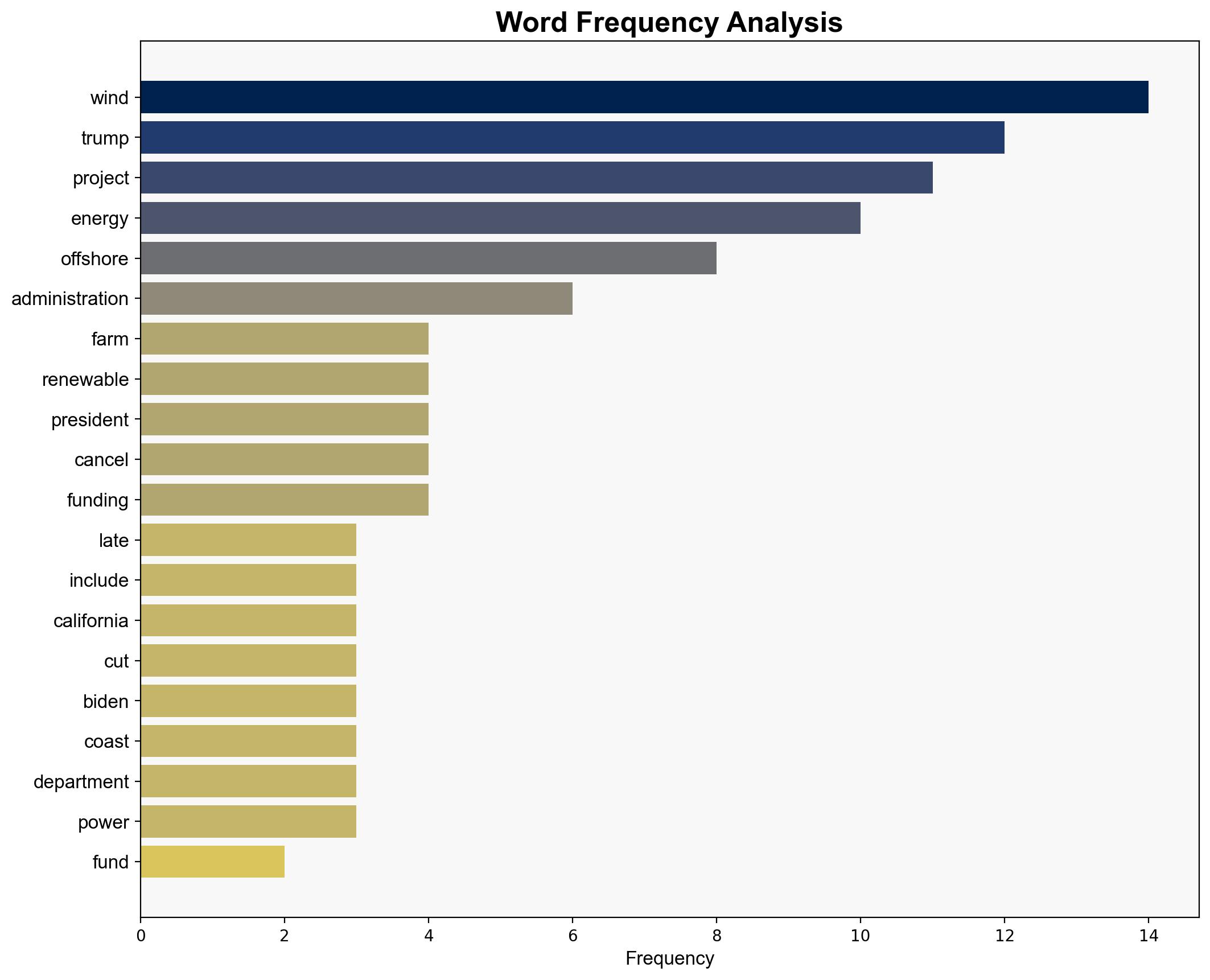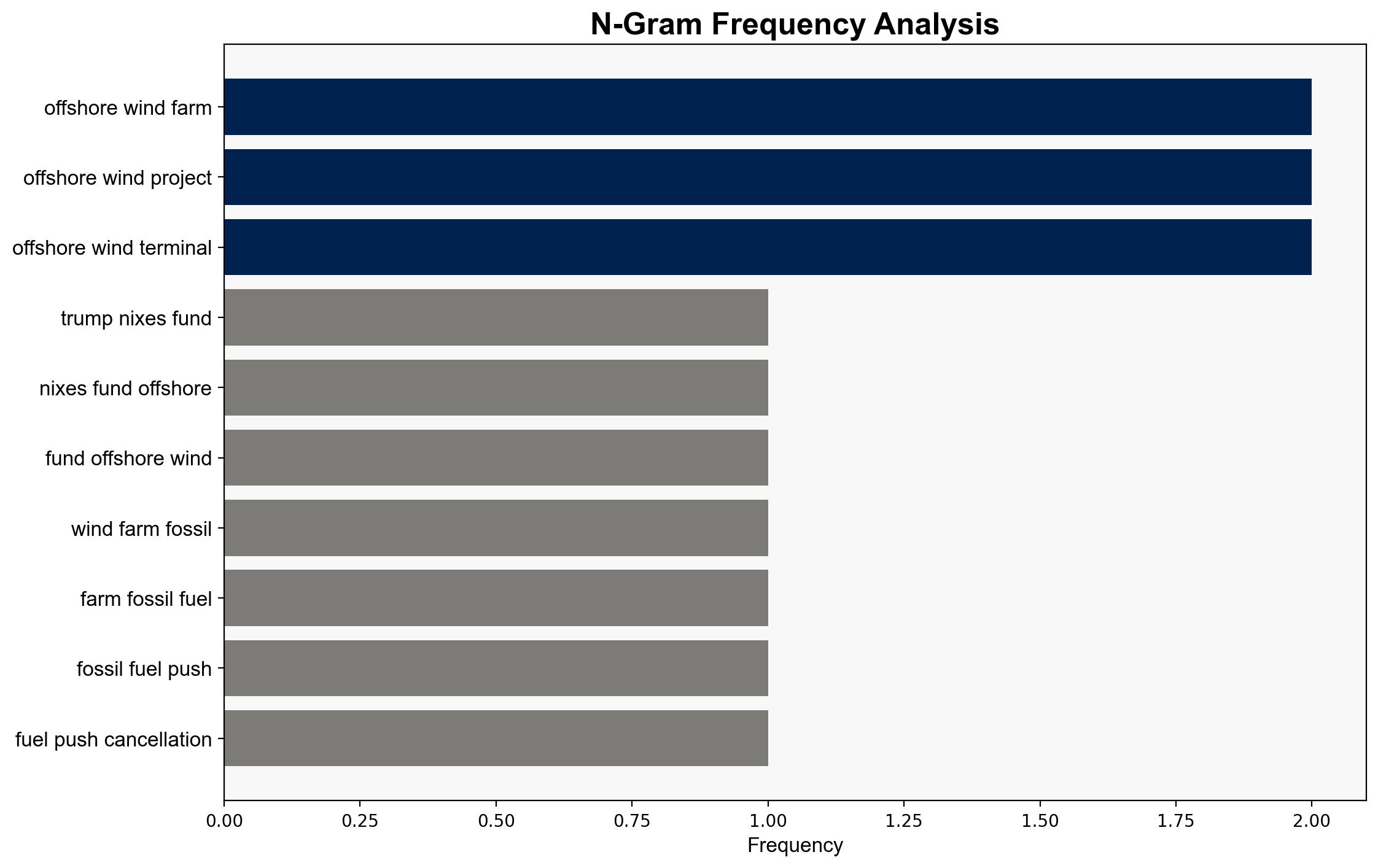Trump nixes 679m in funding for offshore wind farms amid fossil fuel push – Al Jazeera English
Published on: 2025-08-29
Intelligence Report: Trump nixes 679m in funding for offshore wind farms amid fossil fuel push – Al Jazeera English
1. BLUF (Bottom Line Up Front)
The decision to cancel $679 million in funding for offshore wind farms by Donald Trump appears to be a strategic move to bolster fossil fuel industries. The most supported hypothesis is that this decision aligns with a broader agenda to prioritize traditional energy sectors over renewable energy, potentially to gain political support from these industries. Confidence level: Moderate. Recommended action: Monitor subsequent policy shifts and industry responses to assess long-term impacts on energy strategy and economic implications.
2. Competing Hypotheses
Hypothesis 1: The cancellation is primarily driven by a strategic shift to support fossil fuel industries, aligning with Trump’s broader energy policy and deregulation efforts.
Hypothesis 2: The decision is influenced by perceived inefficiencies and economic concerns related to renewable energy projects, particularly offshore wind farms, which are viewed as costly and ineffective.
3. Key Assumptions and Red Flags
Assumptions:
– Hypothesis 1 assumes a deliberate policy alignment with fossil fuel interests.
– Hypothesis 2 assumes genuine economic concerns about renewable energy viability.
Red Flags:
– Lack of detailed economic analysis supporting the inefficiency claims.
– Potential bias in framing renewable energy as a “scam” without substantial evidence.
– Inconsistent data on the actual economic impact of the canceled projects.
4. Implications and Strategic Risks
The cancellation could lead to increased reliance on fossil fuels, potentially exacerbating climate change impacts and hindering progress toward renewable energy goals. It may also strain relations with states like California and Massachusetts, which are committed to green energy initiatives. The decision could embolden foreign competitors investing heavily in renewable technologies, potentially ceding economic and technological leadership to countries like China.
5. Recommendations and Outlook
- Engage with stakeholders in the renewable energy sector to assess the impact and explore alternative funding mechanisms.
- Monitor geopolitical shifts as other nations may capitalize on the U.S. withdrawal from renewable energy investments.
- Scenario-based projections:
- Best Case: Reallocation of funds leads to more efficient energy projects and improved economic outcomes.
- Worst Case: Significant setbacks in renewable energy development, increased carbon emissions, and loss of global leadership in clean energy technologies.
- Most Likely: Short-term support for fossil fuels with long-term challenges in transitioning to sustainable energy sources.
6. Key Individuals and Entities
– Donald Trump
– Sean Duffy
– Gavin Newsom
– Maura Healey
7. Thematic Tags
national security threats, energy policy, climate change, economic strategy, geopolitical competition




